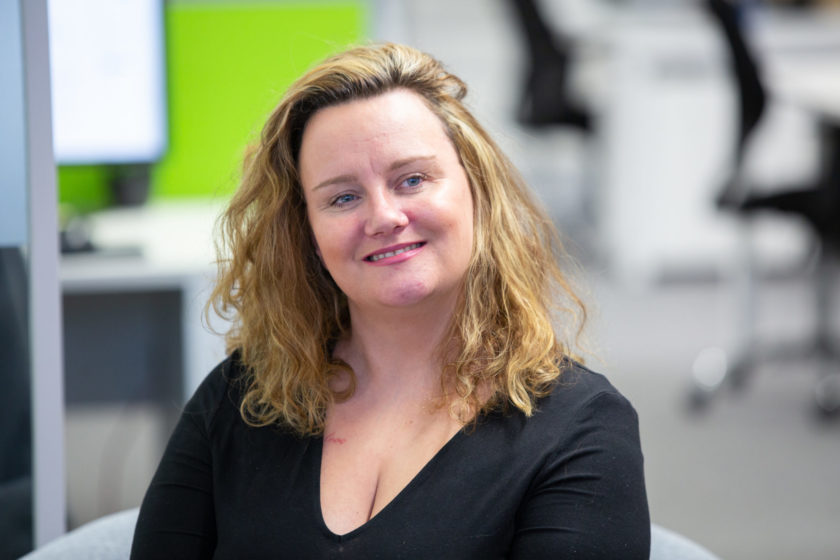Part of our new series where we fire a number of quick questions at people in the industry, to help provide insight into what they do and offer the market.
We spoke to Jo Campbell, director of Operations and paraplanner at Para-Sols.
How did you get into the paraplanning profession?
The same as everyone, I just fell into it. I worked as a director’s PA, who just happened to be a financial adviser. I started doing financial admin and paraplanning and enjoyed that much more. I went on to do my exams and when that firm couldn’t help me to progress into a full paraplanning role, I took a chance on a fledgling little business which at the time was a young girl working by herself – Cathi Harrison – which later became known as Para-Sols.
What does your current role entail?
I look after the operations side of Para-Sols. We have 18 full-time paraplanners, 5 financial administrators and a plethora of support staff. We’re growing all of the time and taking the business from a (very) small structure to a large, successful company brings different challenges every day.
I mostly look at efficiencies, how we can work more effectively to serve the end client, look after client relations and quality and I still do the odd report, to keep my hand in! I work closely with our compliance arm to make sure we’re at the front end of any changes and continually review our systems and reports to ensure the end client benefits.
I also sit on the board at a group level where we regularly discuss and embed a strong culture across Para-Sols and its sister companies; Apricity (compliance) and Art of Finance (training). Working closely within our core values of World Class Service, Innovation and Got Your Back.
What do you see as the key skills when leading a paraplanning team?
It’s imperative that you understand paraplanning, which sounds obvious but actually isn’t as simple as just having a lot of financial technical knowledge. A large part of the role isn’t always the technical side of things, which does help, but isn’t the be all and end all. I often find the hardest part can be time management, pressure and organisational skills. I run soft skills coaching alongside technical knowledge in Para-Sols to provide our paraplanners and administrators with the tools to manage their day effectively, working to deadlines, without pulling their hair out. We’re currently maintaining a 0% bald statistic!
Also, at Para-Sols, we’re firm believers in banishing the Sunday night dread and making this a great place to work, so I try and bring some fun and frivolity to the office whenever I can. It helps motivate the team and when you spend your days writing about pensions and completing complex tax calculations, sometimes all you need is for someone to brighten your day with beer, pizza and a (far too) competitive quiz.
How as a firm do you ensure the quality of reports and that deadlines are met?
For quality, all of our paraplanners have one of their colleagues check their work. Even our most diligent paraplanners can make mistakes. When you’re writing a 1,000 page financial plan that you’ve spent two days on, you’re too close to realise the odd typo or that you’ve called Sharon, Allan at one point. For our junior paraplanners, they get a double check: One where another junior paraplanner checks their work for grammar and spelling issues and one where a senior person checks for technical inaccuracies. This helps with shared knowledge too, with them often picking up additional ways to word things or lay things out.
For deadlines, we’ve had our own Project Management system built, which is designed specifically for paraplanning and works as a diarised task list showing us when cases were input, what is required for them and when each task, be it data gathering, research or report writing, is due. It helps show the advisers which paraplanner is working on their case and which stage it is at. It keeps us all on our toes and is totally invaluable for our day-to-day work.
The company has grown massively since launch. What have been the main challenges of growth?
It did take me a while to adjust when going from a tiny team of 2, to 10, to 20, to 40… each has their own challenge and I was always worried about keeping that small team mentality of having each other’s backs as the team got larger and larger. However, I needn’t have lost sleep over that, everyone gets on so well and the team and work ethic are so strong. We’re very lucky.
We have scaled our team effectively as we’ve split everyone into smaller teams or hubs. Each hub has a lead paraplanner, a paraplanner, a couple of junior paraplanners, a graduate/trainee paraplanner and an administrator. Each time we grow, we create new hubs and this has helped us to build out our proposition while maintaining our culture of teamwork and helping each other.
Operationally, what are the main challenges for an outsourced paraplanning firm of the size of Para-Sols?
Keeping 40 staff happy has its challenges, whether its office temperature, choice of music or simply arguments over whether my jokes are funny or not (they are). But it’s a challenge I love. Having overwhelmingly positive responses to our staff survey in June shows that we’re on the right track too.
With regards to the paraplanning side, having over 150 clients means that we deal with literally hundreds of combinations of provider/platform/investment strategy/branding. We therefore have to have a very robust system for keeping track of all of the personalisation. Working in hubs helps as it means that advisers deal with the same paraplanners each time and strong relationships develop between us and the client. It does mean that our paraplanners do very quickly garner a huge amount of knowledge about all the different options and we regularly share best practice and knowledge, which we pass on to our clients.
How do you see the role of the paraplanner developing?
Inevitably it will become more and more technical. The use of more complex tools will become invaluable. We already use more cashflow and analysis systems to provide as much information and planning tools to the end client. However, I think the biggest growth will be in the culture of the paraplanner and how it is seen as its own career and not as a pathway to adviser-ship. This has come a long way in the 15 plus some years I’ve been doing this, but it has a long way to go and it’s a fight I’ll continue to bring my metaphorical kung-fu moves to!
You are presenting at the Technical Insight Seminar Newcastle tomorrow (Tuesday 26 November) what’s the subject of your session?
Suitability, but not as you know it. So we’ve covered standard suitability reports before but this time we’re looking at how to streamline suitability to make your day-to-day lives easier (which is my metier). We’ll be looking at CIPs/Platform DDs and Annual Suitability and sharing some tips and best practice. Disclaimer, there is a little bit of compliancey stuff at the beginning for context, but I promise to keep it brief!



























